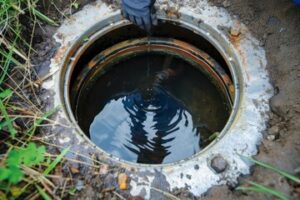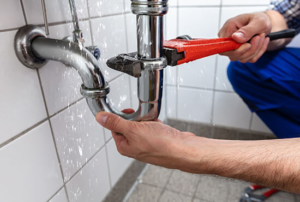Liquid waste disposal involves specific regulations and guidelines to ensure safety, regulatory compliance, and environmental protection. Each type of liquid medical waste necessitates a tailored approach.

All approved discharges are subject to a strength charge, facilities charge and volume component. Strength charges are based on COD and TSS concentrations exceeding base concentrations. Click Here for more details.
In the case of liquid waste disposal, proper collection is vital. If the waste isn’t collected correctly, it can be carried into waterways and groundwater aquifers. This can cause contamination and pose a threat to public health. Fortunately, there are a number of liquid waste disposal services that can help you dispose of your hazardous liquid waste safely.
The collection of liquid waste from landfills is a complex process, requiring careful planning and adherence to strict safety standards. It requires a team of skilled professionals to ensure that the liquid is collected safely and efficiently. This is especially important in areas with limited space or where the waste can be blown away by wind. Moreover, the waste must be stored securely to prevent leakage or explosions.
Liquid waste is a hazardous material that can seep into the groundwater supply and pollute ecosystems. If left untreated, this toxic liquid can contaminate drinking water and cause serious illnesses and even death. Many factories in Southeast Asia, for example, dump their waste into local rivers, causing severe pollution.
In addition to being harmful to humans, this waste is also damaging to wildlife. It can poison animals and contaminate their water supplies, which is why it’s so important to properly handle and dispose of liquid waste.
One method of liquid waste disposal is dewatering, which involves removing the water from the waste by applying pressure or using centrifugal force. This process is a good choice for non-hazardous wastes and is relatively cheap. Another method is composting, which turns liquid waste into a fertiliser that can be used for plants and soil.
Another method of liquid waste disposal is incineration, which destroys pathogens in the waste by heating it to high temperatures. This method is often used for bodily fluids, as well as dialysis waste. Healthcare facilities that don’t have the equipment to process this type of waste on-site rely on scheduled pickups from licensed medical waste disposal services. These providers are equipped to treat all types of liquid medical waste. In addition, they can collect and transport these materials to specialized disposal facilities for treatment.
Storage
Keeping your liquid waste in a safe and secure location is important for safety reasons. Keep the storage area away from areas where forklifts operate and make sure that any non-waste materials are not stored in or near your liquid waste. This will reduce the chance of an accident occurring during transport or leaking out of your containers during storage.
The best way to ensure the safety of your staff and the public is by segregating your liquid waste into different types of streams, based on its chemical properties. This will help to prevent mixing compatible waste streams, which can cause chemical reactions or even toxic fumes. It will also prevent contamination and the need for reprocessing or treatment, which could lead to an expensive disposal cost.
Your waste management system should be equipped with appropriate storage facilities for each type of waste stream you generate. The system should also be designed to accommodate your unique operational needs and to meet the specific criteria of your disposal vendor. For example, some types of liquid waste may need to be solidified before disposal, as they can otherwise cause damage and environmental harm when in the groundwater or aquifers.
During storage, keep your liquid waste in a cool and well-ventilated area, out of direct sunlight, and clear of any flammable materials. In addition, store it in a secure area where only a limited number of employees can access it. This will help to ensure that your storage area is kept clean and that any tagging or pickup procedures can be done in an orderly and efficient manner.
Make sure that any containers holding liquid waste have an accurate label, and that the red-and-white Laboratory Waste tag is affixed to each container as soon as it is filled. The contents of the container should also be listed on the label in case it is needed for identification purposes, or in the event that the containers are destroyed or need to be replaced.
Avoid pouring liquid chemicals down the drain, as this is a violation of EPA, New Jersey Environmental Control Board (NJECB) and Stony Brook Regional Sewerage Authority (SBRSA) regulations. Only certain waste streams, such as ignitable and corrosive liquids, can be disposed of through sanitary sewer drain disposal.
Treatment
The treatment of liquid waste is an essential process. This ensures that the contaminated wastewater is not released into the environment. This is especially important for the waterways and groundwater aquifers that are near landfill sites. Various treatment techniques have been developed to treat liquid waste, including granular activated sludge processes, shortcut denitrification, and membrane processes. These methods help to reduce oxygen and carbon levels in the treated water and produce high-quality effluent.
Liquid waste can be very dangerous to the environment, and it is a major source of pollution. It can quickly soak into the soil, contaminating the plants and animals that live in the area. It can also carry pollutants to other areas that are far away from the site of the original pollution. This is why preventing the leakage of liquid waste from landfills is so important.
Many communities rely on septic systems for their individual sewage disposal. These are a common and cost-effective way to treat household and commercial sewage waste. But the waste they generate can degrade groundwater quality if it is not properly managed. That’s why the public health department is responsible for regulating the design and construction of septic systems, as well as for the inspection of existing septic systems to ensure compliance with local codes.
Another significant source of liquid waste is municipal solid waste landfills (MSWLFs). These are facilities that take in both solid and liquid waste. However, many of these MSWLFs have issues with the management of liquid waste. Many have trouble keeping the liquids separated from the solids, which can result in a large amount of contamination and problems with odors.
One solution is to use superabsorbent polymers (SAPs) to remove the free liquid from the waste materials. This is a very efficient and cost-effective way to prevent the release of hazardous chemicals into the environment. These SAPs can be added to the waste material before placing it in a landfill or waste container.
In addition to reducing the risk of liquid spills, SAPs can also improve the efficiency of the landfill’s treatment process. This is because the SAPs reduce the amount of liquid that must be removed from the waste.
Disposal
Liquid waste is any residue that comes in liquid form and poses a risk for people or the environment. It can be found in restaurants, car washes and in homes, as well as any industrial facility that uses tanks for oil or sewage treatment. Some examples of this type of waste include sludge, grease traps and wastewater. Generally, this type of waste is stored in tanks or septic systems until it can be transported to landfills for disposal.
Several key steps are involved in the liquid waste disposal process. It begins with collection, which can be accomplished using a variety of methods, including storage tanks, pipelines and pumping stations. From there, the waste can be pumped to treatment facilities where it is neutralized and detoxified. This is a critical step in the disposal process because it reduces the amount of waste that needs to be landfilled, reducing environmental impacts and the cost of disposal.
Once the liquid waste is treated, it can be disposed of in a landfill. However, it is important to note that not all landfills are created equal and some may not be able to handle liquid waste. Many state and local regulations specify that a landfill must have specific features to accept liquid waste. This can include operating restrictions, groundwater monitoring and more. If a landfill does not meet these requirements, it must be closed and the waste sent elsewhere.
Some of the most hazardous liquid wastes are chemicals, including formaldehyde, corrosives, alcohols, inks and dyes, pesticides and photographic waste. These wastes are dangerous for the environment and for human and animal health when they are released into waterways or soil. They can also be toxic for the workers who handle them. Many chemical factories are located near bodies of water, which further increases their chance of contaminating them.
Typically, chemical waste is disposed of via sanitary sewer drain disposal or through a Chemical Waste Program. While this is an excellent way to minimize exposure and protect the environment, it is important to remember that only certain types of chemical waste are allowed for this type of disposal. The Stony Brook Regional Sewerage Authority (SBRSA) will sample any liquid waste that is deposited into the sanitary sewer system to ensure that it does not contain regulated hazardous waste or other restricted substances.

